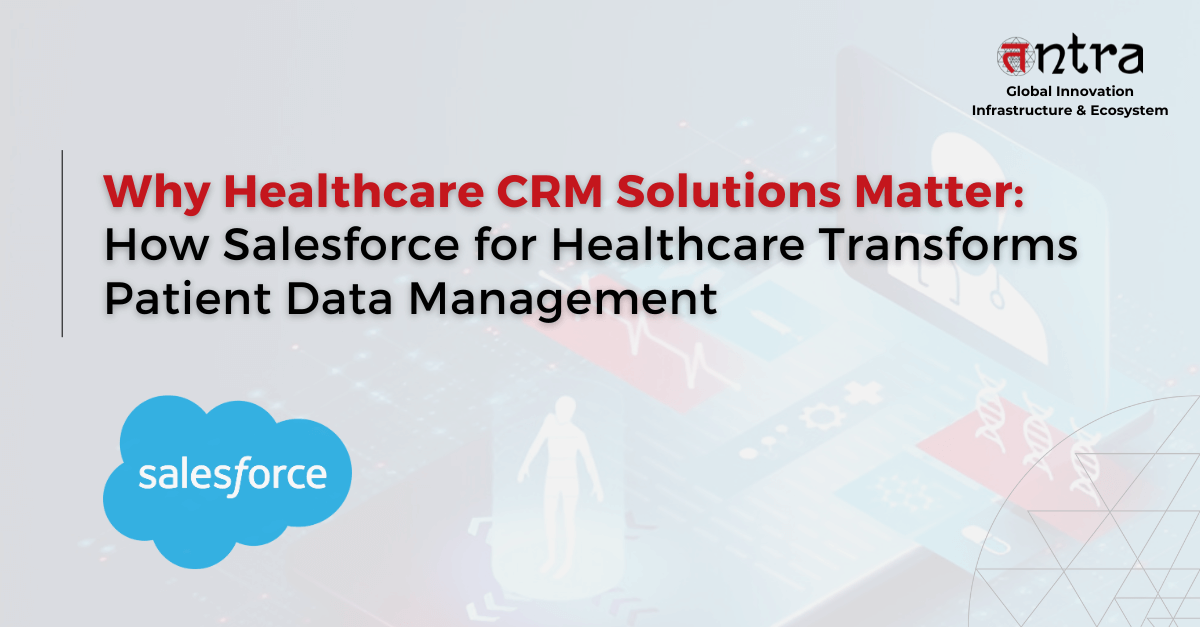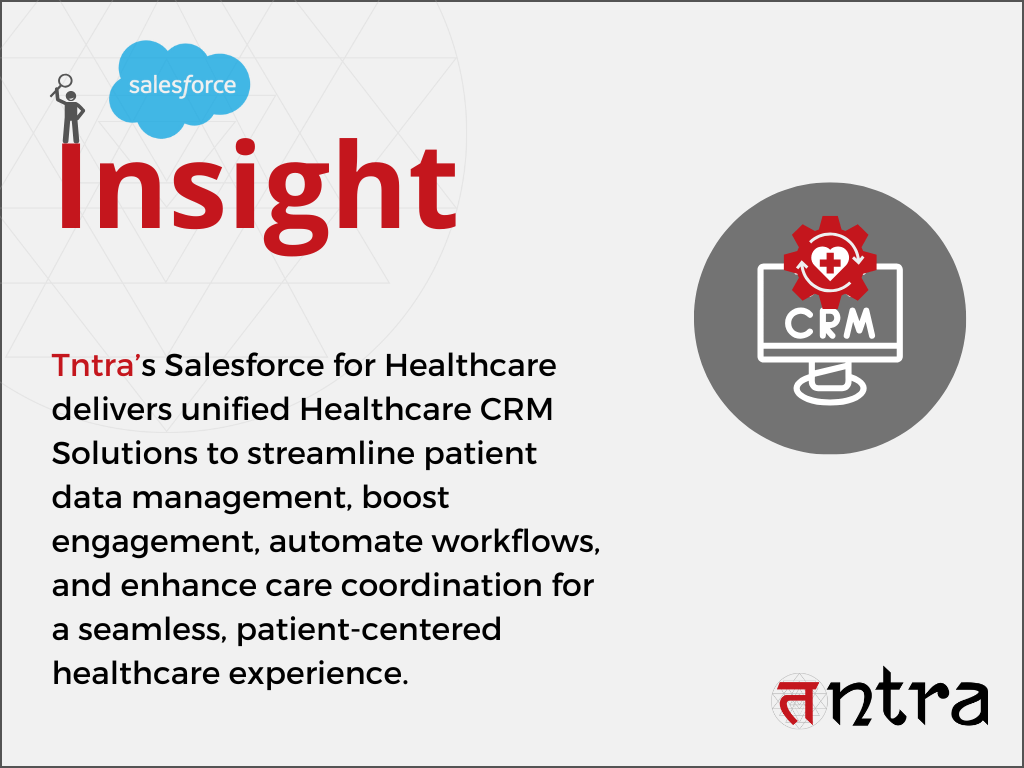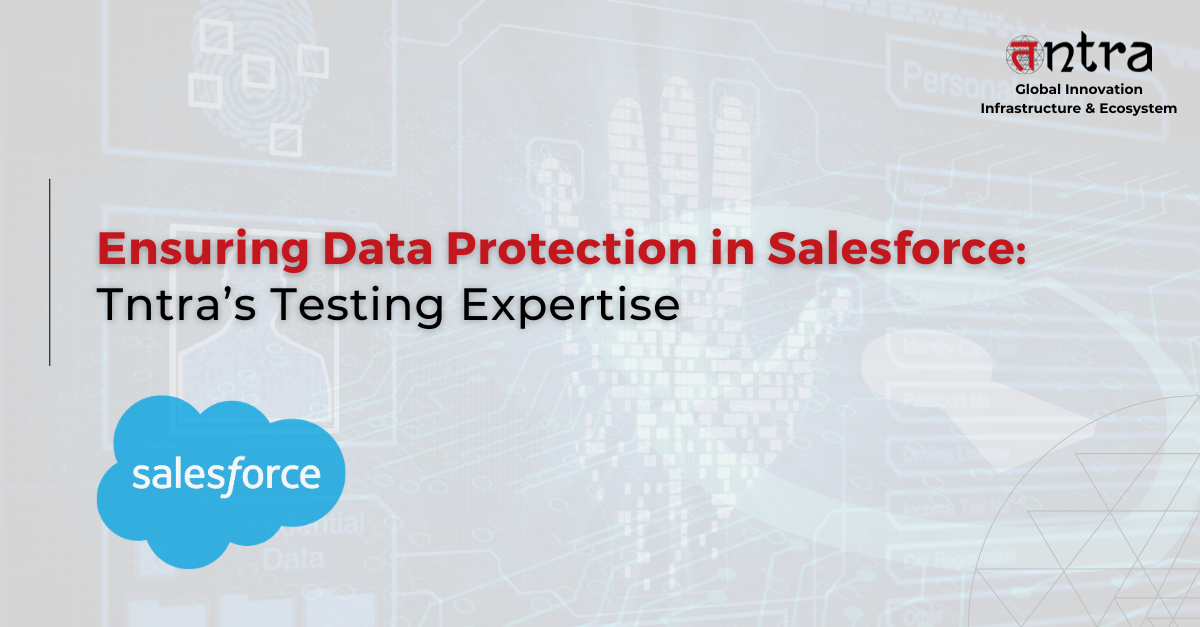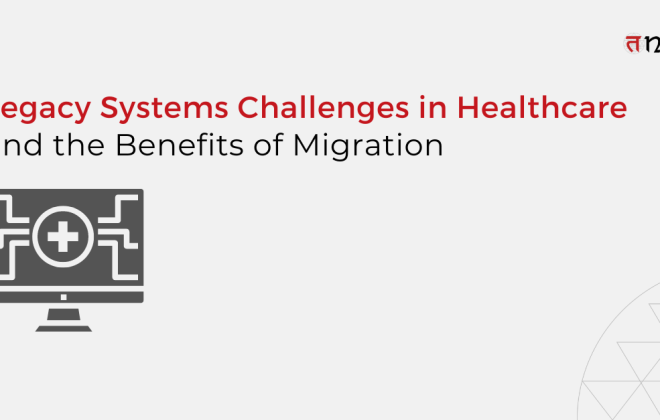
Why Healthcare CRM Solutions Matter: How Salesforce for Healthcare Transforms Patient Data Management
Table of Contents
ToggleImplementing Salesforce for Healthcare’s unified CRM, a leading Healthcare CRM Solution, centralizes patient records, streamlines data management, integrates easily with EHR systems, and automates administrative work. Salesforce lowers operational costs and enhances patient outcomes significantly by facilitating real-time collaboration, personalized patient engagement, and robust security. By enabling healthcare providers to provide high-quality, patient-centered care, implementing Salesforce’s healthcare-specific CRM solutions is driving the future — better and more compassionate — of healthcare systems. Continue reading to learn more.

Why Traditional Healthcare Systems are No Longer Enough in the Era of Unified CRM
In an age of smartphones, wearables, and 24/7 digital access, one critical sector remains behind in data connectivity: HEALTHCARE. While our apps share data instantly, hospitals and clinics still juggle siloed systems for patient records, appointments, billing, and insurance. Anyone who’s had to shuffle between departments or repeat their medical history knows this pain all too well.
Thankfully, healthcare CRM solutions are evolving fast—and Salesforce for Healthcare is leading the charge. As a trusted name in healthcare data automation, Salesforce helps unify patient data, simplify care delivery workflows, and enable seamless collaboration. In this blog, we explore why a unified CRM for healthcare is critical, how Salesforce supports this transition, and how healthcare providers can adopt it for long-term success.
The Real Challenges of Healthcare Data Fragmentation
Healthcare data is complex by nature. Most patients’ information is scattered across multiple electronic health records (EHR), insurance systems, lab reports, and even outdated paper files. According to a recent study, although 80% of U.S. hospitals use EHR systems, very few achieve complete patient data integration across platforms.
This fragmentation increases administrative overhead, causes delays in diagnosis and treatment, and raises the risk of human error. Patient data management may not sound exciting—but when disorganized, it can mean life-threatening missteps. A unified CRM for healthcare can consolidate critical data in a secure, accessible format, enhancing efficiency and care quality for providers and patients alike.
Why Healthcare Providers Need a Unified CRM System Today
Centralized Patient Records for Streamlined Access
Imagine checking your health app and instantly seeing your latest bloodwork, upcoming appointments, and treatment history. Now imagine your doctor, nurse, and specialist viewing the same real-time dashboard. Salesforce for Healthcare enables this vision by integrating EHR systems, insurance portals, and third-party platforms through open APIs, making it the backbone of patient data automation.
Boosting Efficiency Through Healthcare Data Automation
When healthcare technology solutions combine automation with expert care, administrative burdens shrink. Salesforce automates appointment reminders, billing notifications, and patient communications—reducing no-shows and freeing up staff to focus on clinical care. According to KLAS Research, hospitals adopting these tools cut administrative costs by up to 20% in the first year.
Enhanced Patient Engagement with Personalized Experiences
Modern patients expect Amazon-like convenience from healthcare providers. With Salesforce patient engagement platforms, providers can offer customized health messages, digital scheduling, and wellness resources—tools that directly correlate with improved patient outcomes and satisfaction.
Benefits of Salesforce for Healthcare Organizations
Scalability from Clinics to Hospital Networks
Whether you’re a small clinic or a large healthcare network, Salesforce medical solutions scale to meet your needs. You can easily expand functionality, plug in new data sources, and adjust workflows without overhauling the entire system.
Department-Specific Customization
Different departments—primary care, oncology, cardiology—require different tools. Salesforce delivers tailored configurations so teams can operate independently yet remain connected, reducing workflow conflicts and improving collaboration.
Strong Ecosystem and Localized Support
Salesforce’s vast partner ecosystem includes salesforce consulting companies, salesforce development firms, and salesforce customization services. For instance, providers seeking Salesforce consulting services in Maryland or custom Salesforce development services in Maryland can access region-specific expertise and compliance support.
Seamless EHR Integration
Electronic Health Records (EHR) integration is a cornerstone of Salesforce Healthcare Solutions. With robust APIs and custom connectors, Salesforce integrates easily with most EHR platforms—breaking down data silos and enabling a 360-degree patient view.
Salesforce CRM for Hospitals: Connecting Every Touchpoint
Hospitals are complex ecosystems. From emergency rooms to outpatient care, multiple departments produce massive volumes of data. Salesforce CRM for hospitals in Maryland and other regions connects these data points to improve care continuity and administrative transparency.
- Faster Triage: Access to real-time patient history enables rapid, accurate emergency decisions.
- Efficient Discharge & Follow-Up: Automated reminders enhance post-care compliance and reduce readmissions.
- Integrated Billing: Housing billing, clinical records, and communication tools under one system leads to improved financial transparency.
Many healthcare providers combine healthcare CRM solutions in Maryland with local regulations and Salesforce’s flexible platform to ensure compliance and efficiency at the same time.
Core Features of Salesforce for Healthcare Data Management
Data-Driven Insights & Predictive Analytics
Salesforce includes built-in analytics that allow administrators to identify patterns in patient populations, optimize workflows, and make data-driven decisions—enhancing the performance of healthcare data management systems.
Delivering Seamless Patient Care
When every healthcare provider accesses a unified patient profile, the risk of treatment errors, redundant testing, or missed diagnoses decreases significantly. This seamless patient care with Salesforce fosters collaboration and improves trust across care teams.
Enterprise-Grade Healthcare Data Security
Healthcare data security is non-negotiable. Salesforce supports HIPAA, GDPR, and local privacy standards. With advanced Salesforce customization services, organizations can set up granular permissions, encrypted storage, and detailed audit logs to monitor data access.
Getting Started with Unified CRM in Healthcare
1. Audit Your Current Systems
Begin with a gap analysis—where is your data stored, how is it shared, and who has access? This foundational step helps define your CRM implementation roadmap.
2. Partner with Salesforce Experts
Choosing a Salesforce consulting company in Maryland or an experienced salesforce development company ensures your system is configured for healthcare-specific needs and local regulations.
3. Focus on EHR Integration
Ensure your EHR vendor can connect seamlessly with Salesforce or work with third-party connector tools to streamline data flow.
4. Train Your Teams Thoroughly
Invest in structured onboarding for doctors, nurses, administrative staff, and IT teams. A well-trained team is key to CRM adoption and long-term success.
5. Iterate & Improve
Track KPIs like patient satisfaction, appointment adherence, and claim turnaround time. Use these insights to fine-tune your CRM implementation continuously.
Real-Life Wins with Salesforce CRM in Healthcare
Take the example of a mid-sized hospital that implemented healthcare CRM software solutions through a Salesforce partner. By automating appointment reminders, digitizing billing, and syncing with EHRs, they cut administrative costs by 30% and boosted patient satisfaction by 15% within six months.
Another clinic used Salesforce-powered patient engagement platforms to deliver personalized recovery content post-discharge. The result? A dramatic drop in readmission rates and increased patient retention.
These success stories show how salesforce consulting companies are revolutionizing care delivery by aligning patient-centric goals with cutting-edge technology.
Transforming Healthcare with Salesforce: The Time is Now
We are on the brink of a digital healthcare revolution where Healthcare IT solutions like Salesforce create intelligent, connected care systems. The goal isn’t just administrative efficiency—it’s better diagnoses, collaborative care, and more compassionate experiences.
For providers aiming to modernize, Salesforce CRM for healthcare providers delivers unmatched scalability, security, and patient-centric capabilities. Whether you’re looking to implement healthcare CRM solutions in Maryland or roll out enterprise-wide transformation, Salesforce medical solutions are the trusted way forward.
Ready to elevate your healthcare delivery?
Explore our salesforce consulting services and custom Salesforce development services in Maryland today. Let’s build a patient-first ecosystem with Salesforce—where healthcare is seamless, secure, and truly connected.
Frequently Asked Questions (FAQs)
What are the benefits of using a unified CRM in healthcare?
A unified CRM streamlines patient data, automates workflows, and enhances provider communication—leading to better clinical outcomes and reduced administrative costs.
How does Salesforce Health Cloud improve patient care coordination?
Salesforce Health Cloud consolidates EHR data, offers real-time updates, and empowers care teams with tools for collaborative, informed decision-making.
What features make Salesforce suitable for healthcare data management?
Features like robust EHR integration, built-in analytics, automation, patient engagement platforms, and strong healthcare data security protocols make Salesforce ideal for healthcare settings.
Can Salesforce CRM help reduce healthcare costs?
Absolutely. Salesforce automates routine tasks, improves scheduling efficiency, and reduces errors—all contributing to lower operational expenses.
How does a unified CRM enhance patient engagement in healthcare?
By enabling personalized communication, real-time alerts, and timely follow-ups, a unified CRM boosts patient satisfaction, compliance, and care outcomes.





